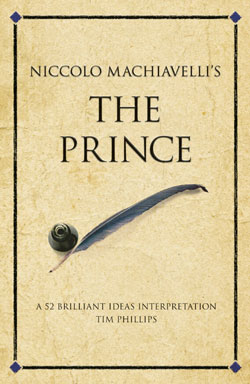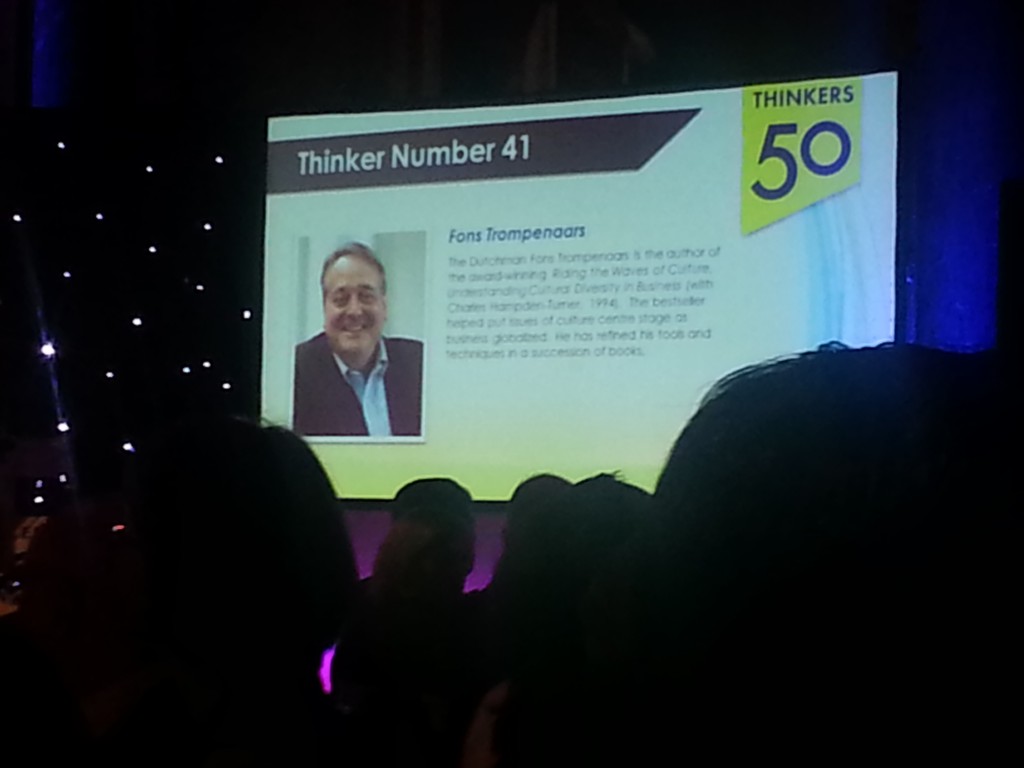Business and finance
Google Glass, piracy and the digital world
24 January 2014 by Admin in Business and finance
2013 saw the addition of a new word to Urban Dictionary – Glasshole (s, n.): An obnoxious, disgustingly rich and/or famous wearer of last year’s controversial gadget-accessory Google Glass.
Google Glass is a voice-activated set of not-so fetching eyewear – simply utter the words ‘OK, glass’ and enter a world of divine gadgetry. By incorporating technology similar to Apple’s Siri (typically found lurking on the humble iPhone and iPad), Google have given Glass users access to a vast factual database: ask for directions; translate a line of Chinese; find out the status of your flight (business class of course)… and if you’re desperate to know just exactly how long the Brooklyn Bridge is, Glass can have the answer in a jiffy (Google is particularly proud of that one).
Surely we’ve all been there: a night out on the town sporting a minuscule (but wholly fabulous) handbag (or perhaps a smaller-than-average manbag, or a large-but-not-quite-large-enough pocket), with as little hope of taking a camera along as squeezing a hyperactive giraffe into the average attic space (to give you an idea, check out the expertly crafted video Giraffe (in my loft) by Weebl’s Stuff). But Glassholes know better. They can nonchalantly fling away their ‘old school’ cameras and video recorders, safe and smug in the knowledge that Google Glass can see, record and share what they see – handsfree (eat your heart out James Bond).
But hold the second mortgage: Google Glass has been somewhat slow to catch on – not least because you can’t simply pop down to your local electronics store to get your hands on one. The prospective Glasshole must sign up to the (we think rather pretentiously named) ‘Glass Explorer Program’ using an online form. Not only that: you must be a US resident, and you must initially be placed on a waiting list among, presumably, thousands or even millions of other aspiring Glassholes. So a select few privileged Glassholes are running rampant among the unsuspecting common folk, and concerns have been raised in the media not only about the average Glasshole’s unfair competitive advantage at boardgames, but more importantly about serious matters such as intellectual property and piracy. Who cares? I hear you cry. Well as content publishers, we do.
Imagine walking into a cinema and recording the entire film just by looking at it. A man recently arrested in Ohio under suspicion of doing just that was afterwards released when officials discovered that his prescription glasses were in fact out of action at the time. A spokesman for America’s Motion Picture Association dismissed the threat posed by Glassholes as (at least for now) insignificant, and one discerning commenter on a related news article noted: ‘A person using a head-mounted camera or Google Glass would have to sit absolutely still for 90–120 minutes in order to produce a viewable video. Imagining that someone is actually doing so and producing a video that would be a viewable alternative is really stupid.’ Stupid or not, perhaps concerns about piracy would be better focused on the ebook and app market, where copyrighted files frequently – inevitably – end up doing the rounds on illegal torrent sites. At an App Developers Conference in Los Angeles last year, a survey revealed that 26% of app developers had been affected by piracy. Disgraceful… (incidentally if you’re looking for a virus-free alternative to torrent sites, why not browse our ebooks on Kindle? We’re usually running a cheeky promotion or two, and they change monthly. We’re launching some fantastic practical apps soon, too, on our splendid website).
So with all the wonderful, low-priced content available in today’s digital marketplace, perhaps the main concern about Google Glass isn’t piracy (avast, me hearties), but personal privacy. We can’t help but feel a little uneasy at the thought of being caught on camera by any Google Glass-adorned Tom, Dick or Harry we happen to encounter after a long day at the office. And we’re not alone. Campaigners at Stop the Cyborgs (no doubt well acquainted with George Orwell’s 1984 and similar visions of dystopia) are condemning Google Glass as just another part of the ‘iron cage of surveillance’ that confines modern society.
But Google is championing its latest bit of kit for its practical capabilities, rather than as a discreet (really?) spying tool. Go to the official Glass website to read ‘explorer stories’ from people who actually put the device to good use and have some inspiring stories to share (we’ll let them off, then). But we won’t forgive the techie boffin who developed Glance for Google Glass, a new ‘sex app’ designed for couples wanting to ‘experience sex like never before’. We appreciate the gesture, but just… no. And just in case you’re itching to know the total length of the Brooklyn Bridge, it’s 1,825 metres. Thanks, Google!
How to understand and apply the world’s most powerful business tools
20 January 2014 by Infinite Ideas in 100+ Management Models, Business and finance
Fons Trompenaars and Piet Hein Coebergh explain the eight dominant management trends that form the basis for their analysis of 100+ Management Models.
Five-hundred years of tyranny?
16 December 2013 by Admin in Business and finance
The Prince (previously titled De Principatibus or About Principalities) was written five-hundred years ago by Italian diplomat Niccolo Machiavelli, following his imprisonment under suspicion of conspiracy. He suffered torture on the rack and afterwards, being disillusioned by injustice and confined within his study under house arrest, he wrote his unapologetically cynical pamphlet. It was to revolutionise the way people think about human behaviour – influencing generations of politicians, military leaders, businesspeople and even global institutions. Published five years after Machiavelli’s death, The Prince now sits among Collodi’s Pinocchio and Dante’s Divine Comedy as one of the most translated Italian texts.
In The Prince, Machiavelli explains how to gain power by any means, and how to hold onto it. He did not feel threatened by notions of hell and judgement or divine wrath; instead he believed that sins can be excused if they have an outcome that is beneficial to society. He regarded success as a strategy game based on strength and cunning, so it is unsurprising that Mussolini wrote his dissertation on The Prince, that politicians are frequently referred to as Machiavellian, and that one of Machiavelli’s most famous pieces of advice is that it is more advantageous to be feared than to be loved: love can be conditional, but fear is ever-present in those who feel intimidated.
Although first recorded five-hundred years ago, Machiavelli’s observations are studied and applied even today. Intimidation tactics are widely used in warfare and, in battle, morality is rarely the primary consideration. In business, it is well known that productivity can be increased by maintaining emotional detachment. It is usually the most ruthless businesspeople who reap the highest returns, and successful global corporations looking to minimise competition often buy out their nearest rival or find a means to crush it. According to Machiavelli, survival is key: in order to thrive in a world where people are deceitful, fickle and underhand, it is necessary to dominate, to be fortunate, and, ultimately, to be feared.
 Although Machiavelli’s outlook on society is a bleak one, the lessons in The Prince offer a way for individuals to control their lives, to influence others and to succeed in their own chosen pathway. Machiavelli was ruthless, selfish, underhand and immoral; he encouraged five generations of tyrannical thinkers. But, crucially, he believed that by emphasising your ‘higher purpose’ and always showing your best side, you were more likely to succeed. And it’s hard to argue with that.
Although Machiavelli’s outlook on society is a bleak one, the lessons in The Prince offer a way for individuals to control their lives, to influence others and to succeed in their own chosen pathway. Machiavelli was ruthless, selfish, underhand and immoral; he encouraged five generations of tyrannical thinkers. But, crucially, he believed that by emphasising your ‘higher purpose’ and always showing your best side, you were more likely to succeed. And it’s hard to argue with that.
Find out more about Machiavelli’s seedbed for controversy in our modern-day interpretation of The Prince, and take a look at this BBC documentary, created to celebrate the five-hundredth anniversary of Machiavelli’s original text.
Book publishers and the world of apps
20 November 2013 by Admin in Book publishing, Business and finance
On 23rd November 2013 the BBC will air the 50th anniversary episode of Doctor Who, Day of the Doctor, and it’s interesting to read how various publishers are producing apps – to cash in – as Dr Who fever sweeps the nation (see the Guardian article here).
You wonder how many people will spend £1.99 on the Sonic Screwdriver app from Useless Creations (what a fab name by the way). While it sounds like a lot of fun – we’re Tom Baker and Louise Jamieson junkies at Infinite Ideas – you have got to ask: Why? Are people really going to be walking around waving their virtual Screwdriver in the streets in order to emit various Dr Who themed noises? I suspect they’ll get some strange looks if they do.
The article also mentions the Random House Dr Who Encyclopaedia app published a couple of years ago to coincide with their printed edition of the same. This seems to be the way that most conventional book publishers have been approaching the app world of late – using apps as  promotional tools to enhance print copy sales. The big name TV chefs (Jamie, Nigella et alia) all have apps, usually free, which promote their various TV series and the accompanying books. So, as the price of developing apps plummets, iStore and other app platforms are becoming an important part of book publishers’ marketing activities.
promotional tools to enhance print copy sales. The big name TV chefs (Jamie, Nigella et alia) all have apps, usually free, which promote their various TV series and the accompanying books. So, as the price of developing apps plummets, iStore and other app platforms are becoming an important part of book publishers’ marketing activities.
But can publishers create their own apps from content that they own and generate serious income streams? Our experience at Infinite Ideas is very much that they can. We own a database of great consumer content and creating apps is a logical extension of our long-held ambition to be able to deliver great content at the very point the user needs it. We’ve worked with top app developer Mobifusion on a range of lifestyle apps – check out our Better Body series: Abs, Dance workout and Total body workout, all of which have done very well for us.
The app market is maturing and up until very recently, developers have been concentrating on games – just think of the colossal success of Angry Birds, Stick Cricket, Candy Crush Saga and others. But as apps become mainstream and the user demographic widens, app platforms will become a serious source of revenue for book publishers prescient enough to own their own content and clever enough to repurpose it.
Fons Trompenaars ranked among the top fifty management thinkers worldwide
14 November 2013 by Admin in 100+ Management Models, Business and finance
Publisher Infinite Ideas is delighted that one of its best-selling authors, international management consultant Fons Trompenaars, has yet again proven himself one of the world’s most influential management thinkers by ranking among the top fifty business men and women to be selected for the excellence and originality of their work, including top-rated Harvard Business School innovation expert Clayton Christensen, two strategy professors boasting a record-breaking bestseller, and an unprecedented number of female thinkers.
Featuring in the 2011 and now also the 2013 Thinkers50 ranking (read: ‘Oscars of management thinking’), Fons claims that his enduring success may be a result of an ‘increasing need for knowledge of intercultural management’, and he’s probably right – cultural differences are becoming alarmingly apparent with the intensification of globalisation in twenty-first century business. And as foreign business escalates within corporations and SMEs alike, there is a growing demand for intelligent observations that will help managers to succeed fully in their chosen markets.
The Thinkers50 awards ceremony, taking place every two years and revered by the global business community, followed a day of discussions with some of the top business school leaders and high tea with 2011 ranked thinkers, with intimate discussions on topics such as innovation, capitalism, work and sustainability.
Fons is the co-author of Innovating in a global crisis, Servant leadership across cultures and The global M&A tango, all published by Infinite Ideas. In April 2014 Infinite Ideas will publish 100+ management models, in which Fons and his co-authors present an expert analysis of the most important models for tracking, measuring and forecasting business solutions.
McDonalds and literature
5 November 2013 by Admin in Business and finance
Another really good article on Publishing Perspectives here (we do love this site).
McDonalds, as you will read, are giving up at least temporarily their position of being the world’s biggest producer of toys and becoming the world’s most prolific children’s book publishers. In two weeks alone, they anticipate giving away some 20 million books to children. The books are being published exclusively for them and each carries a strong nutritional message. Sadly Ronald McDonald and the Hamburglar don’t feature in any of them, presumably as a move away from their association with full fat food of, shall we say, arguable nutritional value.
‘We think that this is a fun and engaging way to give a nutritional message to kids,’ said Ubong Ituen, (what a fabulous name by the way), VP-marketing for McDonalds USA. ‘This is really the first step in a larger book strategy, and our intent is to continue over several years.’
So they’re in it for the long haul. One wonders whether they will ever return to the ubiquitous supply of plastic toys that used to make Happy Meals so appealing to youngsters.
 I guess McDonalds should be applauded and if the books are actually of value and truly engage with their consumers then it is bearing out an argument that we’ve pursued over many years at Infinite Ideas – physical books are a great way for brands to connect to and remain connected with their customers. Books have a perceived value that goes way beyond other pieces of sales promotion. Papa Smurf (I’m probably showing my age there) or whatever other figurine they supplied in the past ends up at best in the toy box, un-played with after a week or so. But a book – a good, well written and produced book? Well, that could end up something that stays with the child for a long time, read and re-read over the years and that means that the McDonalds brand remains with the child and the parent for a long time.
I guess McDonalds should be applauded and if the books are actually of value and truly engage with their consumers then it is bearing out an argument that we’ve pursued over many years at Infinite Ideas – physical books are a great way for brands to connect to and remain connected with their customers. Books have a perceived value that goes way beyond other pieces of sales promotion. Papa Smurf (I’m probably showing my age there) or whatever other figurine they supplied in the past ends up at best in the toy box, un-played with after a week or so. But a book – a good, well written and produced book? Well, that could end up something that stays with the child for a long time, read and re-read over the years and that means that the McDonalds brand remains with the child and the parent for a long time.
James S Murphy of The Millions is a little less enthusiastic, harking back to the period in the 70s when McDonalds produced children’s classics such as Tom Sawyer, Robinson Crusoe et alia as a giveaway. And you can see his point from a cultural perspective. Many of these classics are ignored by the current generation, often cited as being ‘too difficult’ for modern kids to engage with (a glance at texts studied in this country at GCSE English over the past few years bears this out, too.) But after all, McDonalds are in the business of selling more fast food rather than educating the next generation in great literature. That’s a pity but you can understand their point.
So if one of the biggest brands in the world recognizes the power of the physical book we’re very pleased. Having worked with some pretty big brands over the years and produced some fabulous books with them to enhance their consumer engagement, it’s something that is close to the hearts of all at Infinite Ideas.


